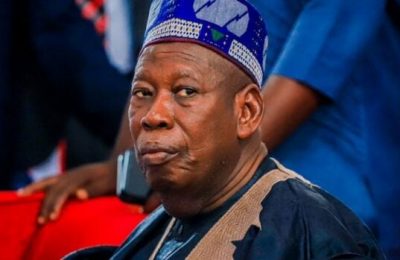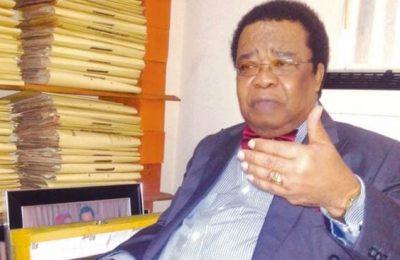
Lagos State Governor, Mr. Babajide Sanwo-Olu, has stressed the importance of African leaders in developing a proactive, resilient, and visionary African health strategy.
He emphasised that such a strategy must be capable of addressing both the current needs arising from past pandemic experiences and fortifying the continent against future global health security threats.

Governor Sanwo-Olu made this statement while speaking at the opening of the 10th African Conference on One Health and Biosecurity, themed “From Ebola to COVID-19 and Beyond: Strengthening Africa’s Capacity to Address Emerging Global Health Security Threats.” The event was held on Wednesday at the Oriental Hotel, Victoria Island, Lagos.
Represented by his deputy, Dr. Kadri Obafemi Hamzat, Sanwo-Olu added that as the continent looks beyond the recent pandemic, African leaders must prioritize strengthening national health systems, investing in primary healthcare, surveillance, and emergency preparedness.
The governor further urged that Africa must ensure improved community engagement, empower local leaders, promote health literacy, and combat misinformation.
According to Sanwo-Olu, the continent must ensure its commitment to health security remains unwavering. He pointed out that, based on this, the state government is actively working to strengthen its biosecurity frameworks, enhance disease surveillance systems, and build a workforce prepared for the post-COVID-19 world.
Additionally, he stated that the state is committed to advancing local research, developing indigenous technology, and supporting the domestic production of vaccines and medical supplies. He added that his administration envisions an Africa that is self-reliant, resilient, and a leader in global health.
The State Commissioner for Health, Prof. Akin Abayomi, who spoke earlier, emphasized the need for African countries to participate in the ongoing global Synthetic Biology Research.
The commissioner noted that a country with a strong multi-agency biosecurity system would protect the welfare of its citizens, as well as its natural resources and biodiversity, from harmful effects of pests, diseases, toxins, and technology.
ALSO READ: Flood disaster: NEMA concludes assessment of Anambra, Bayelsa communities
In his goodwill message, the former Minister for Power and Housing, Babatunde Fashola, urged African governments and all relevant stakeholders to end open defecation and urination to reduce contamination in the environment.
Fashola also noted that disseminating adequate information and raising awareness would have a significant impact on the spread of pathogens during physical movement.
The Special Adviser to the Lagos State Governor on Health, Dr. Kemi Ogunyemi, in her opening speech, called for stronger collaboration and the enhancement of the continent’s capacity to combat future outbreaks.
“There is a need to enhance surveillance and detection, build resilient healthcare systems, promote community engagement, encourage global participation, leverage technology, and address socio-economic challenges,” she said.
In his welcome address, the Chief Operating Officer of the Global Emerging Pathogens Treatment Consortium (GET), Dr. Ayodotun Bobadoye, stated that pandemics are not just health issues but environmental issues. He argued that it is imperative for people to treat the environment with respect to prevent future outbreaks.
Bobadoye further stated that when people respect their environment, the environment will respect them back. He added that the cost of preventing future pandemics over the next decade—by protecting wildlife and forests—would equate to just 2 percent of the estimated financial damage caused by COVID-19.








